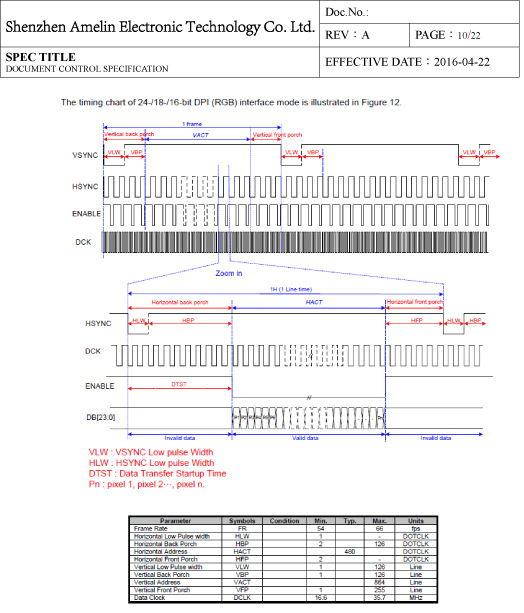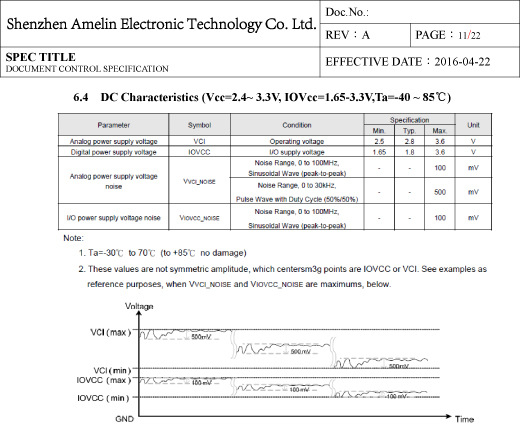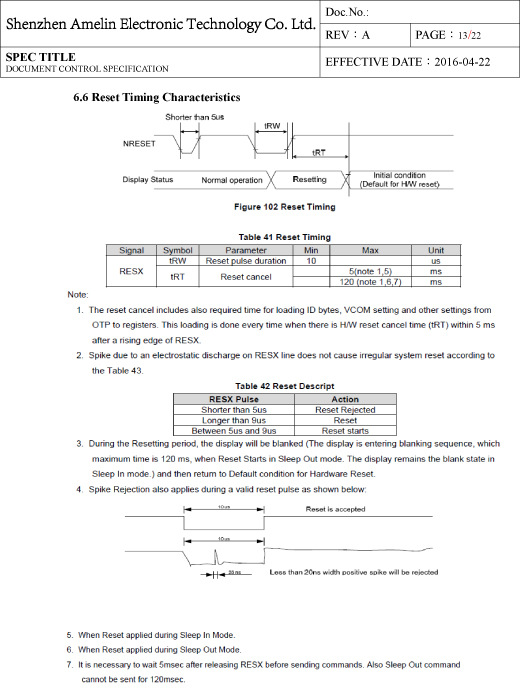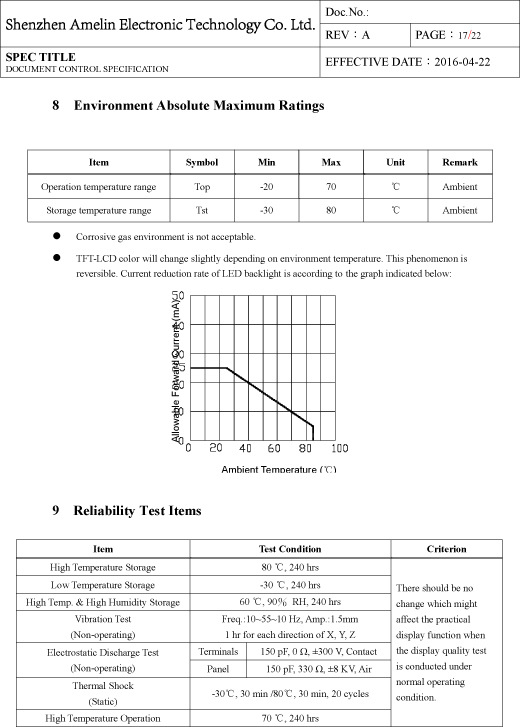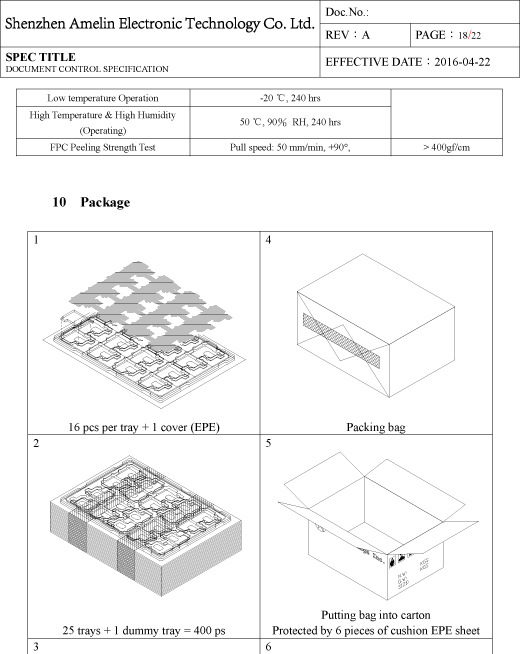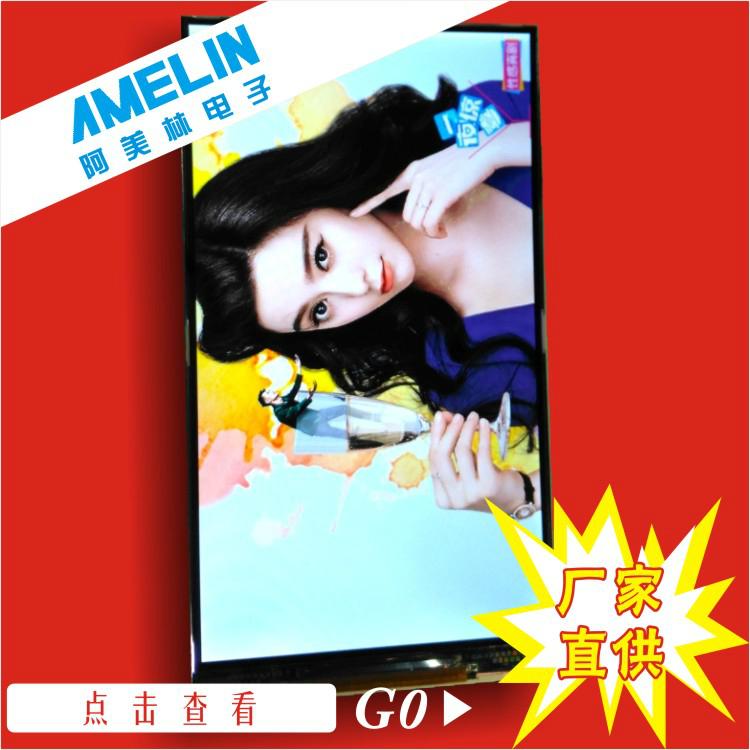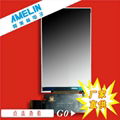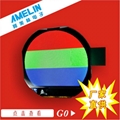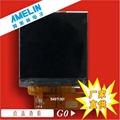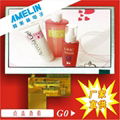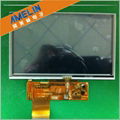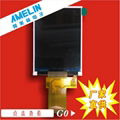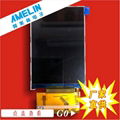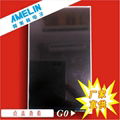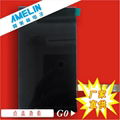5.5英寸TFT液晶显示屏
1.General Deion
FRD550L3901 is a transmissive type a-Si TFT-LCD (amorphous silicon thin film transistor liquid crystal display) module, which is composed of a TFT-LCD panel, a driver circuit a backlight unit, The panel size is 5.5 inch and the resolution is 1080x1920. High image quality a-Si TFT LCD module. Partial-screen display function is available. Sleep and Stand-by modes are available for power saving.
2.Precautions
Please pay attentions to the followings as using the LCD module.
3.1Handling
(a) Do not apply strong mechanical stress like drop, shock or any force to LCD
module. It may cause improper operation, even damage.
(b) Because the polarizer is very fragile and easy to be damaged, do not hit, press or
rub the display surface with hard materials.
(c) Do not put heavy or hard material on the display surface, and do not stack LCD
modules.
(d) If the display surface is dirty, please wipe the surface softly with cotton swab or
clean cloth.
(e) Avoid using Ketone type materials (e.g. Acetone), Toluene, Ethyl acid or Methyl
chloride to clean the display surface. It might damage the touch panel surface
permanently. The recommended solvents are water and Isopropyl alcohol.
(f) Wipe off water droplets or oil immediately.
(g) Protect the LCD module from ESD. It will damage the LSI and the electronic
circuit.
(h) Do not touch the output pins directly with bare hands.
(i) Do not disassemble the LCD module.
(j) Do not lift the FPC of Touch Panel.
4.Storage
(a) Do not leave the LCD modules in high temperature, especially in high humidity for a long time.
(b) Do not expose the LCD modules to sunlight directly.
(c) The liquid crystal is deteriorated by ultraviolet. Do not leave it in strong ultraviolet ray for a long time.
(d) Avoid condensation of water. It may cause improper operation.
(e) Please stack only up to the number stated on carton box for storage and transportation. Excessive weight will cause deformation and damage of carton box.
5.Operation
(a) When mounting or dismounting the LCD modules, turn the power off.
(b) Protect the LCD modules from electric shock.
(c) The Driver IC control algorithms stated above should always obeyed to avoid damaging the LSI and electronic circuit.
(d) Be careful to avoid mixing up the polarity of power supply for backlight.
(e) Absolute maximum rating specified above has to be always kept in any case. Exceeding it may cause non-recoverable damage of electronic components or, nevertheless, burning.
(f) When a static image is displayed for a long time, remnant image is likely to occur.
(g) Be sure to avoid bending the FPC to an acute shape, it might break FPC.
(h) Most of the touch screens have air vent to equalize the inside air pressure to the outside one. The air vent must be open and liquid contact must be avoided as the liquid may be absorbed if the liquid is accumulated near the air vent.
(i) For the fragility of ITO film, it should avoid to use too tapering pen as the input material.
11.4Touch Panel Mounting Notes
(a) If a cushion is used between bezel/housing and film must be choose as free as
enough to absorb the expansion and contraction to avoid the distortion of film.
(b) The cushion must be placed out of the Viewing Area.
(c) Bezel/Housing edge must be posited between Key Area and Viewing Area. The
edge enters the Key Area may cause unexpected input if the gap is too narrow or
foreign particles like dusts exist between Bezel/Housing and ITO film.
Others
a) If the liquid crystal leaks from the panel, it should be kept away from the eyes or
mouth.
b) For the fragility of polarizer, it is recommended to attach a transparent protective
plate over the display surface.
c) It is recommended to peel off the protection film on the polarizer slowly so that
the electrostatic charge can be minimized.
Others
a) If the liquid crystal leaks from the panel, it should be kept away from the eyes or
mouth.
b) For the fragility of polarizer, it is recommended to attach a transparent protective
plate over the display surface.
c) It is recommended to peel off the protection film on the polarizer slowly so that
the electrostatic charge can be minimized.







